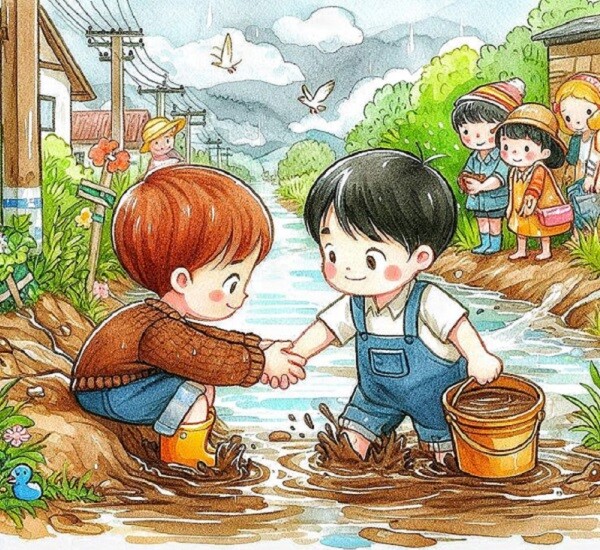Intelligence in children is often reflected in their daily behaviors, problem-solving abilities, and interactions with their surroundings.
Consequently, intelligent children tend to exhibit certain characteristics in their everyday lives.

Intelligent children tend to excel in three key areas:
Faster Learning
Each child has a unique learning ability, but intelligent children often learn more effectively. It is noticeable that some children grasp new information more quickly than their peers.
This difference starts to become apparent in preschool years. For instance, some children learn to speak, read, or draw earlier than others their age.
As they grow older, they tend to perform better academically, understand new concepts quickly, apply what they’ve learned flexibly, and demonstrate strong adaptive abilities.

Faster Learning.
Curiosity and Critical Thinking
Intelligent children are often curious and ask a lot of questions about their surroundings. Many parents have likely experienced this, as children tend to ask “why” about everything, from mundane daily life occurrences to natural phenomena.
On the other hand, many parents feel exhausted by what seems like an endless stream of questions. However, this constant stream of “whys” reflects their curiosity and strong thinking skills.
Each question is an opportunity for children to explore the world and try to understand their environment. When parents patiently answer and encourage children to find their own solutions, their thinking and imagination can flourish.
For example, parents can take their children to libraries or research answers together, increasing their knowledge and fostering independent thinking habits.
Independence and Problem-Solving
Intelligent children tend to be independent and try to solve problems on their own instead of relying on their parents.
Loving parents often want to do everything for their children, such as helping them get dressed or tidying up their bedrooms. However, doing too much for them can hinder the development of self-care and problem-solving skills.
Therefore, it’s essential to allow children to face and overcome minor challenges in their daily lives. While they may struggle initially, with patience and proper guidance, they will gradually learn to take better care of themselves.

Independence and Problem-Solving.

How to Nurture Your Child’s Intelligence:
Encourage Physical Activity
Appropriate exercise promotes children’s physical health and brain development. Regular physical activities stimulate blood circulation, providing the brain with essential oxygen and nutrients, enhancing focus, and improving memory. Additionally, physical activities release positive hormones like endorphins, making children feel happier.
Participation in group activities, such as soccer or basketball, fosters teamwork, communication skills, and social relationships. Encouraging children to engage in physical activities from a young age establishes a foundation for a healthy, active lifestyle as they grow older.

Encourage Physical Activity.
Create an Environment for Thinking and Questioning
Parents should encourage their children to ask questions and provide patient answers. Creating a friendly environment where children feel safe to express their curiosity fosters their natural inquisitiveness.
Each question asked by a child holds a unique meaning and reflects their interests and desire to understand. Parents can use these questions as opportunities to expand conversations, explore new topics, and explain complex concepts in simple, understandable ways.
By doing so, children not only gain new knowledge but also develop problem-solving skills and critical thinking abilities.
Foster Independence
Parents should learn to let go at the right time and allow their children to face and solve minor challenges in their daily lives. Whether it’s getting dressed, packing their school bags, or doing simple chores, these everyday tasks help children develop self-care skills and boost their confidence.

Foster Independence.
When children accomplish tasks, no matter how small, they feel a sense of pride and realize they can overcome challenges. By facing everyday situations, they learn to think flexibly, find solutions, and adjust their actions accordingly. This not only benefits their daily lives but also lays the foundation for critical thinking in the future.
True intelligence stems from a nurturing educational environment and a supportive upbringing. By employing scientific educational methods, parents can help their children develop intellectually, fostering their thinking skills, independence, and creating a solid foundation for their future.

































